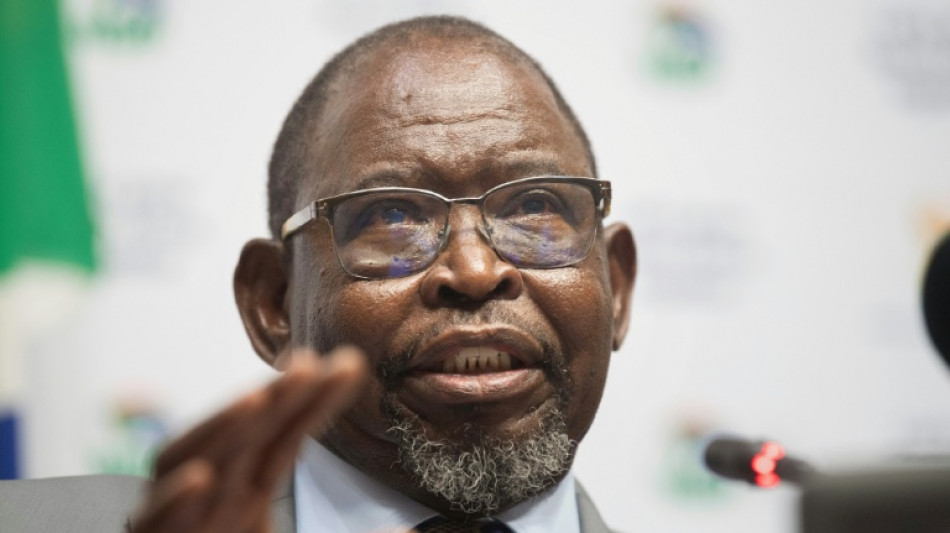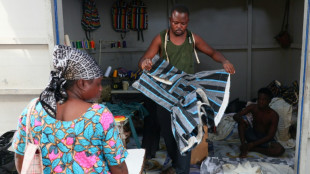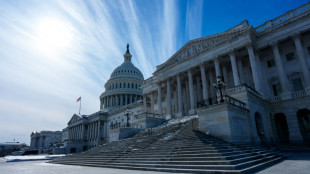
Third time lucky? South Africa presents revised budget

South Africa's finance minister presented Wednesday a third version of the 2025 budget after being forced to backtrack on a proposed increase in value-added tax that threatened to split the coalition government.
Africa's most industrialised nation will now look towards hiking fuel prices to cover the budget deficit, minister Enoch Godongwana told parliament.
Tax revenue projections had been revised down by 61.9 billion rand ($3.5 billion) due to scrapping of the VAT increase and lower economic growth forecasts, he said.
"The decision to do away with the VAT increase without a viable alternative source of revenue significantly reduced our ability to fund additional government programmes," Godongwana said.
The new fiscal plan, christened Budget 3.0 by local media, proposes an inflation-linked increase to the fuel levy.
If adopted, the general fuel levy will go up by 16 South African cents per litre of petrol and 15 cents for diesel from next month, Godongwana said.
"This is not an austerity budget," he said, adding that more taxes will be introduced next year to generate 20 billion rand ($1.1 billion).
The first version of the budget had proposed a two-percent increase in VAT to 17 percent but was withheld at the last minute.
A revised version in March offered a one-percent hike staggered over two financial years.
This version passed a parliamentary vote but was opposed by the Democratic Alliance (DA), the second-largest party and main government coalition partner.
- 'Workable outcome' -
The pro-business DA said it "cautiously" supported the reworked budget presented Wednesday, describing it "as a turning of the tide toward growth and investment".
"It is a workable outcome in the context of trying economic times," it said.
South Africa's sluggish economy is burdened by an employment rate that tops 32 percent, one of the highest in the world and with young people most severely affected.
Inequality within the country's 62-million-strong population is one of the highest in the world, a legacy of white-minority rule voted out in 1994.
Around two-thirds of the population is estimated to live in poverty, according to the World Bank.
The economy grew by only 0.6 percent in 2024, held back by failing infrastructure, including massive power outages blamed on years of corruption, mismanagement and theft.
Government debt has remained stubbornly high and is projected to stabilise at 77 percent of the gross domestic product in the 2025/26 financial year, according to the treasury.
Annual consumer inflation rose to 2.8 percent in April from 2.7 percent in March, mainly due to a sharp rise in meat prices, the statistics agency said on Wednesday.
L.Herrero--HdM

 London
London

 Manchester
Manchester
 Glasgow
Glasgow
 Dublin
Dublin
 Belfast
Belfast
 Washington
Washington
 Denver
Denver
 Atlanta
Atlanta
 Dallas
Dallas
 Houston Texas
Houston Texas
 New Orleans
New Orleans
 El Paso
El Paso
 Phoenix
Phoenix
 Los Angeles
Los Angeles


